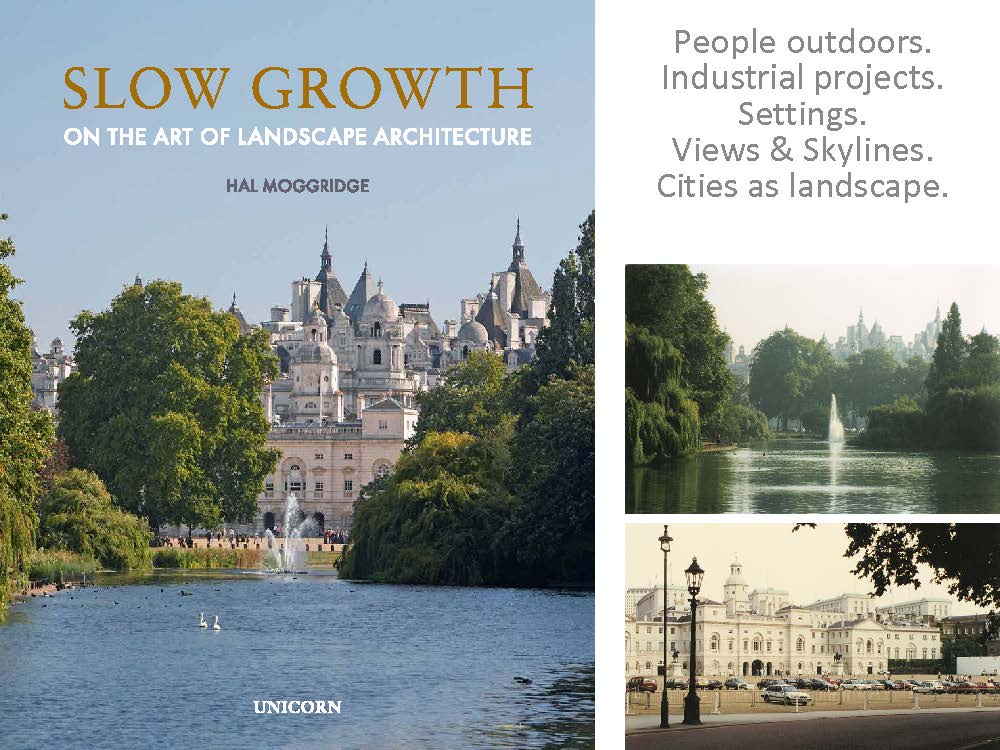Hal Moggridge lecture: Slow Growth: On the Art of Landscape Architecture
On Wednesday 21st February, Hal Moggridge lectured to the London Branch of the Landscape Institute on the theme of his 2017 book Slow Growth: On the Art of Landscape Architecture. A Wikipedia article explains that Slow Food is ‘an organization that promotes local food and traditional cooking. It was founded by Carlo Petrini in Italy in 1986 and has since spread worldwide. Promoted as an alternative to fast food, it strives to preserve traditional and regional cuisine and encourages farming of plants, seeds, and livestock characteristic of the local ecosystem. It was the first established part of the broader slow movement. Its goals of sustainable foods and promotion of local small businesses are paralleled by a political agenda directed against globalization of agricultural products’. Its obverse, fast food, has a well-deserved reputation for being applied to standardised, cheap products made with little nutritional value and a plethora of harmful side effects on the consumer and on the lands from which it is harvested. ‘Slow food’ is better.
‘Slow growth’ is an excellent characterisation of an approach to the design, planning and construction of landscape architecture projects. It rests on thoughtfulness, sustainability and localism. Colvin and Moggridge, launched by Brenda Colvin in 1922, is the oldest extant landscape practice in the UK. Hal’s lecture, like his book, was illustrated with a wealth of projects. They are classified as People outdoors, Industrial projects, Settings, Views & Skylines, Cities as landscape.
The lecture was on Wednesday, 21 February 2018 at Arup’s London office (8-13 Fitzroy Street). The book was published by Unicorn in September 2017 (352 pages, 1000 illustrations ISBN-10: 1910787426, ISBN-13: 978-1910787427)

